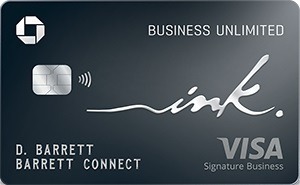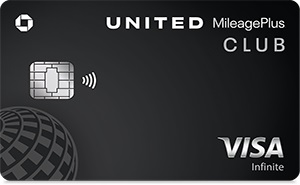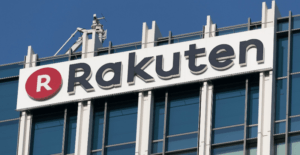 If you’ve landed yourself a job that offers a 401k plan and a 403b plan, which do you choose? In this post we’ll go over the fundamentals of both plans and what they have to offer and decide which one is better.
If you’ve landed yourself a job that offers a 401k plan and a 403b plan, which do you choose? In this post we’ll go over the fundamentals of both plans and what they have to offer and decide which one is better.
However to the average employee, there is next to no difference between these plans, but if you go in depth, they have their differences that have their pros and cons.
| PROMOTIONAL LINK | OFFER | REVIEW |
| J.P. Morgan Self-Directed Investing | Up to $700 Cash | Review |
| TradeStation | $3500 Cash | Review |
| WeBull | 12 Free Stocks & free trades | Review |
| SoFi Invest | $25 Bonus and free trades | Review |
What is a 401k?
A 401k is a retirement plan that is offered by almost all for-profit companies, because of a law passed in 1978 by the US Government called the Revenue Act of 1978. That is when the tax code brought forth a section called the 401(k). By 1982, nearly half of all large companies offered a 401(k).
But what is a 401(k)? It’s a retirement plan that benefits both you and your company. When a company offers a 401(k), they’re agreeing to contribute money into your retirement account for a tax benefit. The plan also lets you deposit money into it directly from your income without the IRS taxing it.
However, when you sign up for a 401(k), don’t forget the rules of the plan. You’re allowed contributions of up to $18,500 as of 2018. You’re also usually not allowed to touch the money until you’re 59 1/2 years old or when you meet a certain IRS Condition. You also have to begin making withdrawals by 70 1/2 years old.
Be wary though, 401(k) and other company sponsored retirement plans only give you limited investing options, maybe around 20-25. This is the opposite of an IRA that allows you to between most types of plans/options. You should also be careful of fund fees. Depending on your plan, you may get less than ideal funds, because of fees.
What is a 403b?
In essence, from an average employee’s perspective, a 401(k) and a 403(b) are exactly the same, except that a 403(b) can only be used in a non-profit organization, such as a hospital, school, etc. Their employees are offered the 403(b) which is the same as a 401(k).
You have the same contribution limits, same withdrawal rules, and your contributions are tax deferred. However, the difference between the two is that in a 401(k), after 15 years of service and your company is considered a “qualified organization” your contribution limited may be bumped $3,000.
This option is not offered in a 403(b). Additionally your contributions in a 403(b) can only be made through mutual funds and annuities. In practice, these two are the same though.

Lastly, 403(b) plans are more limited in the amount of companies they can serve. They send to be smaller since they’re non-profit and their fees may be a bit higher, but recent trends show that fees between the two plans are getting closer and soon there could be no difference.
Which is Better?
There are pros and cons to both plans that may make one plan look more appealing than the other. Don’t look at it as 401(k) vs. 403(b), but as what options the two offer and which suits you the best. Generally, 401(k) plans have lower fees because they operate for larger for-profit companies. The more that participate, the lower the fees. However that isn’t always the case.
In the end it’s all about what each plan offers and what suits you best.
 | BMO Bank Checking: Open a new BMO Smart Money Checking Account and get a $400 cash bonus* when you have a total of at least $4,000 in qualifying direct deposits within the first 90 days. Learn More---BMO Checking Review *Conditions Apply. Accounts are subject to approval and available in the U.S. by BMO Bank N.A. Member FDIC. $4,000 in qualifying direct deposits within 90 days of account opening. |
 | Chase Ink Business Unlimited® Credit Card: New cardholders can enjoy a welcome offer of $750 bonus cash back after you spend $6,000 on purchases in the first 3 months from account opening. Click here to learn how to apply--- Review |
Bottom Line
Hopefully you now know the difference between the two plans. Even though they’re essentially the same in practice, they offer their differences that may be more or less appealing to others.
If you find these posts informative and would like to know any other banking tips and tools, be sure to check out our other Bank Guides! We also have posts on the best Bank Bonuses, Saving Rates, and Best Brokerage Bonuses!
 The United ClubSM Infinite Card offers 90,000 bonus miles after you spend $5,000 on purchases in the first 3 months from account opening. You'll earn: • 4x miles on United® purchases • 2x miles on all other travel and dining • 1x mile on all other purchases. • Earn up to 10,000 Premier qualifying points per calendar year (25 PQP for every $500 you spend on purchases) This card does carry an annual fee of $525. However, you can get up to $120 Global Entry, TSA PreCheck or NEXUS fee credit. In addition, you'll get a savings of up to $360 per roundtrip (terms apply) by getting your first and second checked bags for free and Premier Access travel services! Member FDIC |



